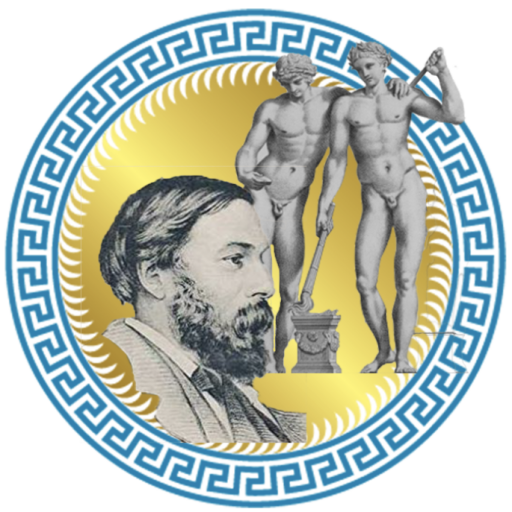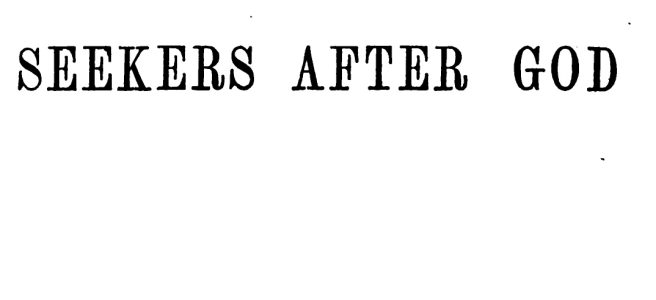A large part of who we are comes from the influence of our environment, and this environment includes the media we consume. While we may have the internet and social media today, some of the main forms of media back in the day of John Addington Symonds were newspapers, letters, and, of course, books. As a wealthier member of society, he had both the time and the resources to access and read many books, and that he did. Thus, I thought it would be interesting to try to dive into some of the books we know passed through his collection to try to understand a little of how these media impacted him.
To a degree, we already know how some of the media Symonds consumed impacted him. In his Memoirs, he notes how stories of male heroes as well as Greek sculptures helped to open his eyes to the reality that he didn’t share the heterosexual attractions and desires of many of his peers, but that his attractions were a little more taboo. He also turned to books to help him understand and explain these desires as he got older, especially returning to the Greeks and their stories. And, of course, even besides helping him understand himself and his sexuality, books were important for Symonds in that he was also a prolific author.
With the transition of Symonds’ collection to Hathi Trust comes the ability to search for keywords within the texts he owned that are available here. This enables me to investigate his collection using keywords to get a general sense of the books that he was reading and the effect they may in turn have had on his thinking and writing. I thought it would be informative to look up antithetical words and see how many of the books in his collection contain them at least once.
The pair of opposites I looked up were “hopeless” and “hopeful,” which, of the 535 works in the collection when I searched for the words, brought up 293 and 154 results respectively, or in percentages, 54.8% and 28.8% respectively. I think it’s fascinating to see that “hopeless” appears in almost twice as many works as “hopeful” and is in fact present in a little over half of the collection. I think this is a very interesting find, and I wonder how much this influenced any actual negative, or even hopeless, feelings in his life.
One concern in this search is that some of the findings for the terms may just be for common things like “I’m hopeful you get better soon,” whereas hopeless is more likely to be used in texts suiting its definition. Thus, I randomly selected ten of the texts generated by each of the searches to see how the terms were generally used.
Although it is true that “hopeful” was often used in relatively mundane contexts, there were still a couple of examples of it being used a little more fittingly, including in one place in Frederic William Farrar’s Seekers After God. Although the quote is describing the legacy of Marcus Aurelius to the people of Rome after his death, its use of “hopeful” is one of the few truer uses of the word.
We are not surprised that all…felt themselves more hopeful and more happy from the glorious sense of possibility which was inspired by the memory of one who…showed himself so wise, so great, so good a man.
Frederic William Farrar, Seekers After God, 275
Conversely, however, I also found usages of “hopeful” in contexts that were actually more hopeless. Towards the end of The Life of Sir Philip Sidney, the book uses “hopeful” in a scene where there is little to be found, as it’s used in reference to his wife’s vain hope of his prevailing over his illness at the end of his life.
His wife, almost exhausted with anxious watching, looked vainly for any hopeful symptom. One day his fine sense perceived that mortification had set in…and [he] spoke of his approaching end with composure, saying ‘he feared not to die, but he was afraid lest the pangs of death should be so grievous that he might lose his understanding.’
Julius Lloyd, The Life of Sir Philip Sidney, 216
When looking through the works containing usages of “hopeless,” although I also found a few instances of more mundane usage, it much more often carried a negative tone more true to its meaning than the usages of “hopeful” did a positive one.
Thus, at least in terms of the contrast of these two words, it could be said that the books in Symonds’ library were more negative than positive, although it’s still uncertain whether this itself influenced any “hopeless” feelings in him, or if maybe he bought and read them because he was simply already feeling this way (or maybe neither).
I think an interesting further analysis would be to go through the works that these words occur in and see when Symonds read and/or owned them. This might tell us if, for example, the larger prevalence of “hopeless” in his collection compared to “hopeful” was true of maybe his earlier collection but maybe not so much his collection closer to his death. Either way, I think this is a fascinating way to dive deeper into his literary influences in a way that was pretty much impossible until now, and hopefully it reveals new insights into Symonds and his work.
Works Cited
Farrar, Frederic William. Seekers After God. Macmillan, 1884.
Lloyd, Julius. The Life of Sir Philip Sidney. Longman, 1862.

